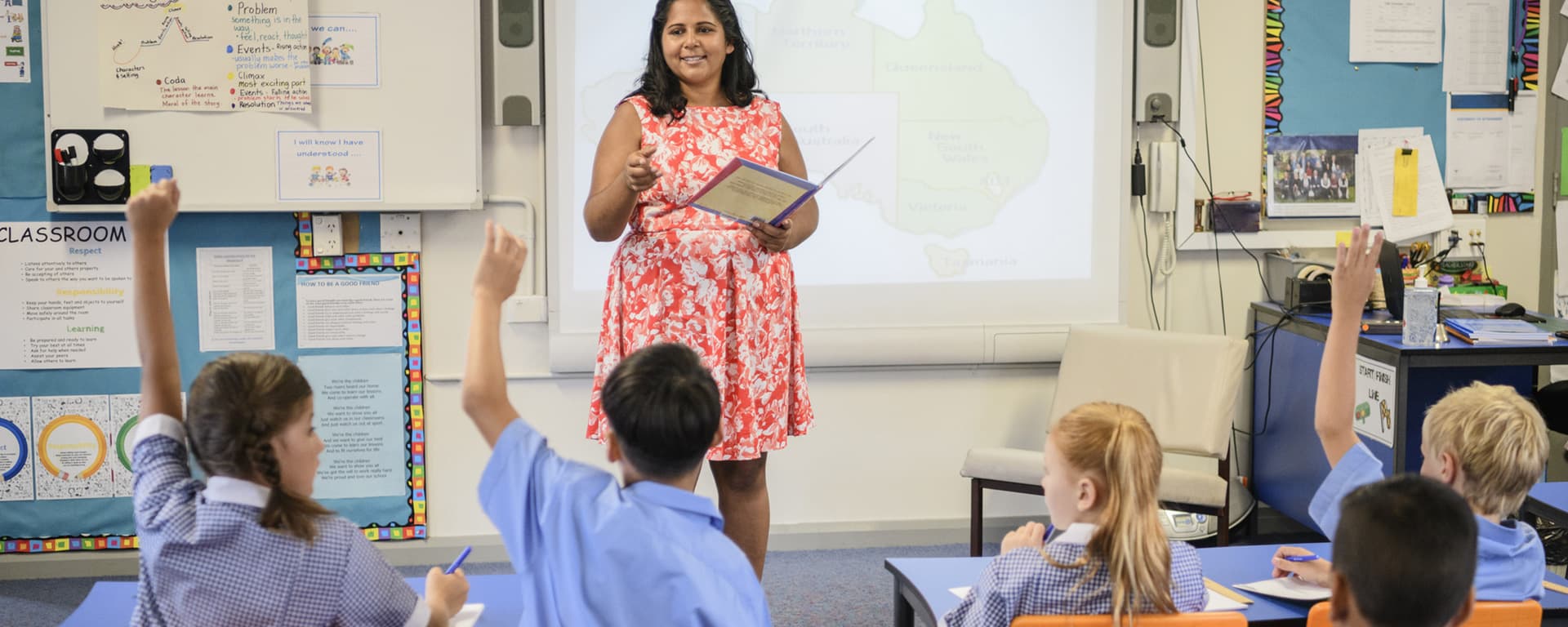
Review to inform a better and fairer education system
In December 2022, Education Ministers agreed to establish an expert panel to inform the next National School Reform Agreement (NSRA). The Review to Inform a Better and Fairer Education System will advise Education Ministers on what reform priorities should be included in the next agreement between the Commonwealth, States and Territories. The Review is an opportunity to drive real and measurable improvements for all students, particularly those most at risk of falling behind.
It is also an opportunity to ensure children and young people are placed at the centre of the education process, because their success matters to us all.
The Smith Family’s CEO, Doug Taylor is a member of the NSRA Ministerial Reference Group, which will be a sounding board and source of advice to Education Ministers and Expert Panel.

What is The Smith Family recommending to review?
-
Putting children and young people at the centre and enabling educational systems to more effectively work with the wider service systems which impact children. This is essential given young people experiencing disadvantage often live in families who struggle to access essential services including health, community services, income support, NDIS and housing and this directly impacts students’ ability to achieve educationally.
-
Supporting parental engagement in their child’s learning.
-
Systemic support for fit for purpose school-community engagement given it improves the relevance of learning and supports student learning growth.
-
High quality and appropriately sequenced careers support.
-
Improving school attendance, including through trialling and evaluating innovations, given a diversity of responses are required.
-
Strengthening literacy, numeracy and digital skills across all levels of schooling, with a particular focus on students experiencing disadvantage.
We want to see the NSRA mechanism evolved to support better outcomes for students. This includes incorporating:
- An independent assessor (e.g., the Productivity Commission, AERO, ACARA, etc.) authorised by the Education Council to review on an annual basis whether progress is being made by States/Territories on agreed educational outcome targets. The role of the assessor should include contributing to the identification of learnings from across jurisdictions and recommendations for ongoing continuous improvement.
- A data and evidence agenda which enables much better and more regular tracking of progress on student outcomes, prioritising those experiencing disadvantage. This should include publicly available longitudinal data. Opportunities to share data and learnings, across jurisdictions, systems and sectors should be promoted and rewarded.
- Incentives for targets being achieved for low SES schools.
- Public accountability mechanisms that require systems and schools to demonstrate additional funds allocated on the base of need are being spent on students with additional needs, including within the context of ‘whole-of-school’ initiatives.

Schools for the future

Addressing educational inequity

Conversations with Anne Hampshire

